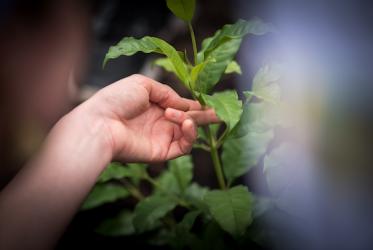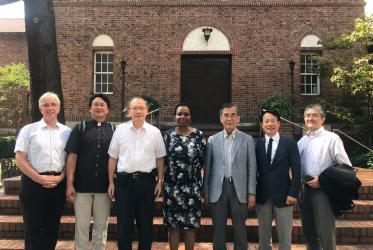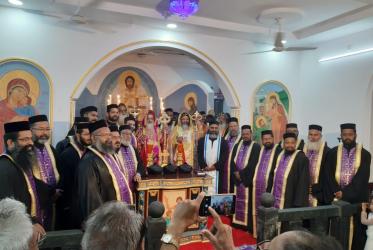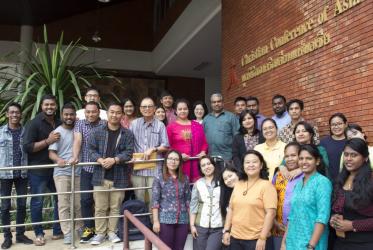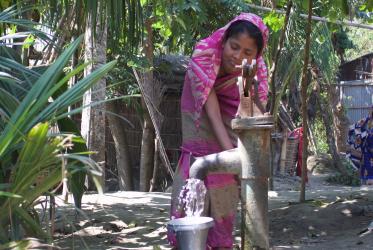Displaying 41 - 60 of 192
26 February 2020
CCIA meets in Brisbane with focus on Pacific regional priorities
19 February 2020
Church of South India eco-ministry featured on UNESCO website
17 February 2020
Church response to Australian bushfires hinges on preparation
07 January 2020
New WCC “Eco Ambassadors” pledge to protect our ecology
06 January 2020
Eco-School promotes blue communities, green churches
19 November 2019
WCC Eco-School begins in Thailand
07 November 2019
In Japan, spirit of koinonia deepens
26 September 2019
In Korea, young ‘stewards of hope’ forge ahead together
19 September 2019
“Economy of life” lifted up at special school in Indonesia
22 August 2019
WCC represented at G20 Interfaith forum in Tokyo
13 June 2019
Peacemakers at work in Sri Lanka
29 April 2019
